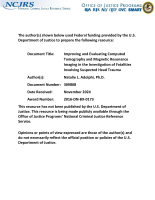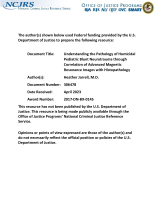Cortical Areas Associated to Higher Cognition Drove Primate Brain Evolution
Journal
Communications Biology
Date Published
January 2025
Agencies
NIJ-Sponsored
Publication Type
Research (Applied/Empirical)




